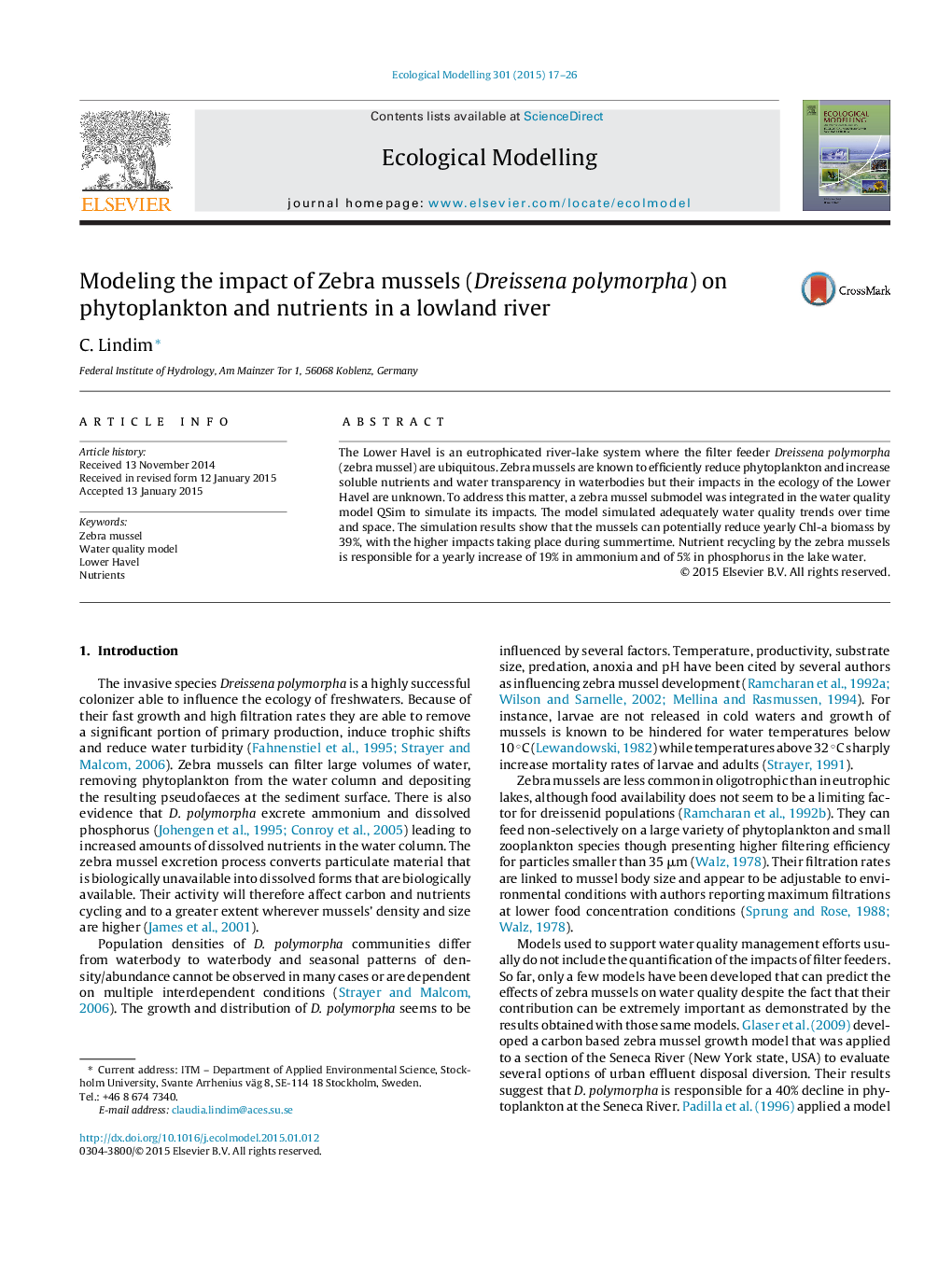| Article ID | Journal | Published Year | Pages | File Type |
|---|---|---|---|---|
| 6296664 | Ecological Modelling | 2015 | 10 Pages |
Abstract
The Lower Havel is an eutrophicated river-lake system where the filter feeder Dreissena polymorpha (zebra mussel) are ubiquitous. Zebra mussels are known to efficiently reduce phytoplankton and increase soluble nutrients and water transparency in waterbodies but their impacts in the ecology of the Lower Havel are unknown. To address this matter, a zebra mussel submodel was integrated in the water quality model QSim to simulate its impacts. The model simulated adequately water quality trends over time and space. The simulation results show that the mussels can potentially reduce yearly Chl-a biomass by 39%, with the higher impacts taking place during summertime. Nutrient recycling by the zebra mussels is responsible for a yearly increase of 19% in ammonium and of 5% in phosphorus in the lake water.
Related Topics
Life Sciences
Agricultural and Biological Sciences
Ecology, Evolution, Behavior and Systematics
Authors
C. Lindim,
